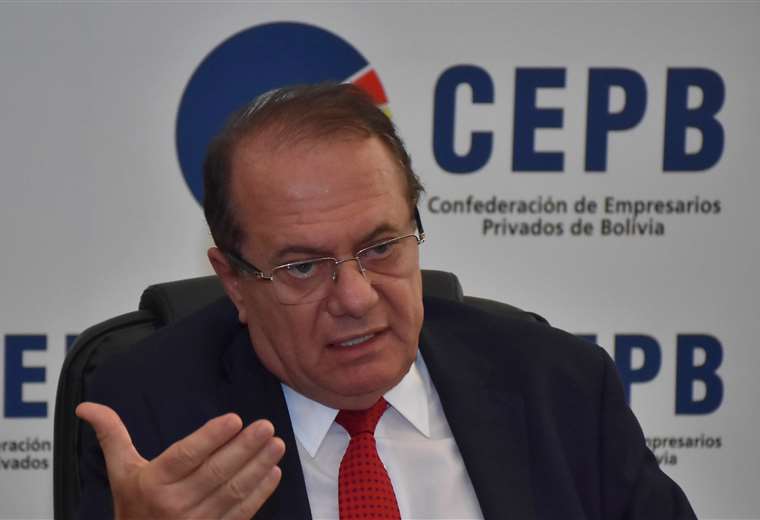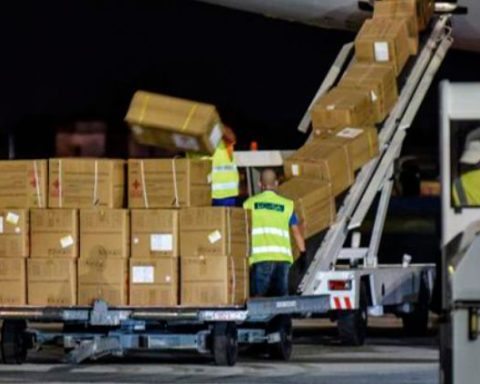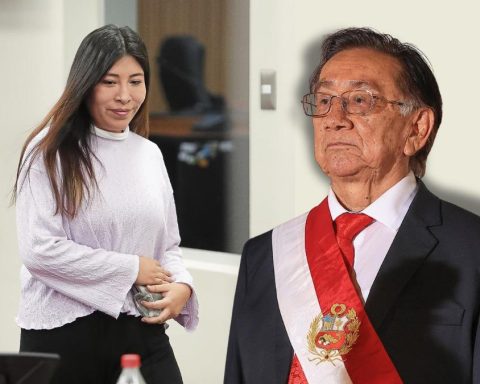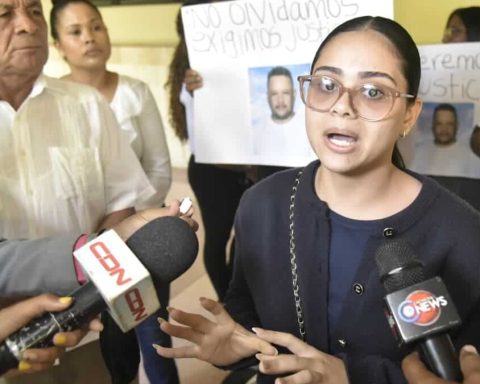In the prelude to the traditional February recess, and in the midst of decisions in the heat of the new constituent process, the National Congress will face a complex scenario starting next March, where both the ruling party and the opposition must deal with the fragmentation of their forces, a panorama that has been exposed with the recent impossibility of the right wing to align itself behind the constitutional accusations against Giorgio Jackson and Marcela Ríos, in addition to the pro-government difficulties to form a single list to compete in the elections to choose the members of the Constitutional Council.
In this context, on the right they assume the challenge of aligning themselves and overcoming the differences, recently revealed between Chile Vamos and the Republican Party, to avoid the pro-government empowerment in Congress, understanding the need for the Government to move forward as quickly as possible with some of its most emblematic reforms. In this regard, the deputy and head of the Renovación Nacional (RN) bench, Andrés Longton, acknowledges that the greatest difficulty will be making two different right-wing groups coexist with each other, each with its own nuances, but which could eventually align with the purpose of shape reform projects, whether in tax, social security, etc.
Likewise, the parliamentarian gave an account of the expectations of his sector in relation to the investigative commission for the granting of presidential pardons, and ruled out that the objective of said body is to finally project a constitutional accusation against President Boric. In addition, and in relation to the election of the members of the Committee of Experts of the constituent process, Longton faced criticism regarding an appointment where political logic would have eventually prevailed over a technical vision, and assured that from the opposition they hope that the process that is just beginning to distance itself as far as possible from the previous failed attempt to draw up a new Constitution.
-What are your feelings after the failure in the constitutional accusation against former minister Marcela Ríos? Do you think that the decision of the Republican Party deepens the differences between two right-wing groups that today make up a fragmented opposition?
—We are satisfied from the point of view that those of us who led that accusation, which was Chile Vamos, ended up approving it, very convinced of the legal and political elements behind an absolutely wrong decision (…). In this sense, we believe that the departure of Republicans has to do, first, with the fact that they are not part of our coalition and second, because they have been in this dynamic of making decisions more influenced by giving political signals to differentiate themselves from us, or rightly set a course different from how to be opposition, which we believe is not correct, because ultimately what has to be imposed is the force of facts, and in this case (accusation against Ríos) we were sure that there was a degree important degree of certainty regarding the legal and political elements. But Republicans ended up voting jointly with the Broad Front and the Communist Party, and thus endorsing the decision to deliver these pardons, which we believe was clearly unconstitutional, illegal, and that politically it also caused great damage to our society, and that ultimately It seems that it is with the complicity of Republicans, who in this desire to give political signals, end up leaving aside the most important thing, which is the defense of the Chilean victims and families.
—In this regard, what are your expectations in relation to the investigative commission that you promoted regarding the granting of pardons? Do you think that this process could have an impact on a possible constitutional accusation against President Gabriel Boric?
—The process should be developed over the next few months, which has a limited period of 60 days for the investigative commission, and by virtue of that we will make definitions. Obviously, for us, the President of the Republic is very delicate, because we believe that presidents have to finish their term, we do not believe in destabilizing countries or in following the examples of other countries that unfortunately have generated a very large destabilization, polarization and an institutional rupture with no return. Therefore, without prejudice to the fact that the seriousness of the actions determines whether or not the presidents of the Republic are accused, this must always be taken very seriously and not with the lightness with which it was taken by the ruling party. , when they were in the opposition and accused former President Piñera.
—In relation to the role that the opposition has fulfilled in this first year of President Boric’s administration, do you assume that it was a mistake to withdraw from the security table regarding the delivery of pardons last December?
—We believe that the table is in Congress, in the commissions, with a table and all the chairs available for us to discuss there, in the heart of democracy, the different initiatives to move them forward. We have told Minister Tohá that we are going to approve the projects that give Chileans greater security, if they are in line with what is required by the citizens. We have had a year in which, at least in the House Security Committee, we have not had projects that go along these lines from the Government and we see this with great concern, because this eventual table would generate a double discussion, a discussion there and another later in Congress. And the truth is that we want to shorten those times, the Chileans want to have greater security, and we must give them that certainty in the shortest possible time frame. So, if we continue arguing about whether or not we should sit at a certain table, I think that the most efficient way to avoid delays is for Congress, where the laws are finally approved, to be our big table to be able to democratically debate the different issues.
—About the fragmentation of the right in Congress and the isolation of the Republican Party, how difficult do you think it will be from now on for you to coordinate to be a coordinated opposition to the government reforms?
—Obviously, it is necessary to define subject by subject, that is, tax reform, pension reform, etc. I believe that the harmony often occurs naturally as a result of the fact that there are coincidences from the point of view of the damage that some reforms can generate, but there may also be differences as to what are the elements that must be improved in those reforms, so that we can, for For example, come up with a pension reform that makes sense with what is happening in the country, regarding the freedom to choose, that the funds belong to the workers, and so on. The truth is that in some elements we can have some nuances, but in the end this is going to be decided reform by reform.
I understand that there has to be a unit that gives a clear signal regarding the strength that the opposition is going to have, but we also have to be realistic that we have differences regarding how to approach certain issues, but without prejudice to them, I think we are going to have greater cohesion in those matters related to major structural reforms, where I believe we share many elements, which will make us vote more aligned, beyond the fact that there are differences and that these can be marked in the respective votes. We understand that this can be a problem, but It is part of living with two rights that are different, with respect to the country we want to build, especially in some subjects where we are necessarily going to have some nuances.
—Regarding the constituent process that has just begun, what do you think of the critical voices against the political agreement that paved the way for this process and the questions surrounding the names proposed by the parties to make up the Committee of Experts? What was that appointment process like? Did a political logic prevail in said appointment?
—In a representative democracy, those who are elected by the citizens are the ones who make this type of decision, regarding what they consider to be convenient for the country, in this case, from the constitutional point of view (…). It was a participatory process, where the different deputies made proposals, and these proposals were heard on the bench and finally there was a voting process, where finally people who we believe meet the ideal requirements to integrate the Committee of Experts were chosen. , because they bring together elements from the point of view of experience in the public and private world, in addition to having a very outstanding professional career behind them. And when one talks about people who participated in the public world, it is difficult not to refer to people who were in previous governments, because generally the best people are the ones that governments recruit. And so, it was necessary to incorporate people who had been in the public world, because precisely the capacity for dialogue and reaching an agreement is embodied in those who have had the opportunity to be in the political world, and that goes beyond the experience in academia or professional experience in the private world, which has to do with political capacity, which is why we also choose people with that profile, complemented by people with a very distinguished career in the private or academic world.
Do you consider it an advantage over the ruling party that Chile Vamos was able to align itself on a single list to face the elections for constitutional councillors? Do you think that the fact that the government forces compete on separate lists could eventually benefit the right electorally?
—What happens is that Chile Vamos has a common framework already defined many years ago. We have been living together, not without difficulties, but there is complicity and shared sensitivities regarding what we want as a country, without prejudice to having some differences, but we have known how to live with them. Therefore, there is a greater tightening, with respect to what can happen with two coalitions that have a different view from the left, which added to the deficient work by the Government that is also expressed by the evident citizen discontent, the makes them (Democratic Socialism) make a decision that has more to do with recovering that identity that they lost in the previous period, where they were constantly pulled by the most radical left, joining it, which left them very invisible, and this is the moment, I believe, so that they can recover that electorate and make a difference with those ideas of the most radical left – represented by Appruebo Dignidad – that I believe do a lot of damage to Chile.
—Finally, what are the expectations of your sector for the new constituent process and how is the right preparing to, unlike the previous process, be an actor with a greater role in the discussion and elaboration of the new Magna Carta?
—We hope that it moves as far as possible from the previous process and that there are no radicalized positions lacking in rationality that lead us to sketches of a new Constitution with refounding characteristics, and for that there are certain elements that guarantee this through the bases, and we believe that when there is experience behind it and when there is clear and complete knowledge regarding the matters, and there are also bases that guarantee that there are certain elements that are part of our constitutional history, that gives it sobriety and moderation, and most importantly, it gives tranquility. We want to reassure the public that we are going to have a sensible Constitution, which is not intended to start the country from scratch, far from it, but rather to nurture ourselves from what our history has been, but also to generate those changes that are representative of what that our country needs, but that ultimately is not representative of any sector in particular.

















